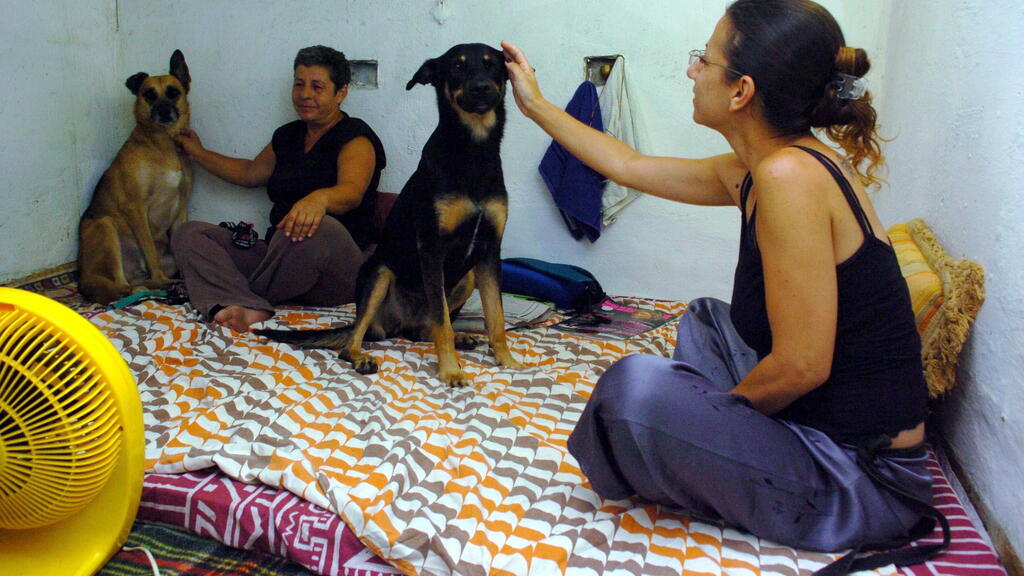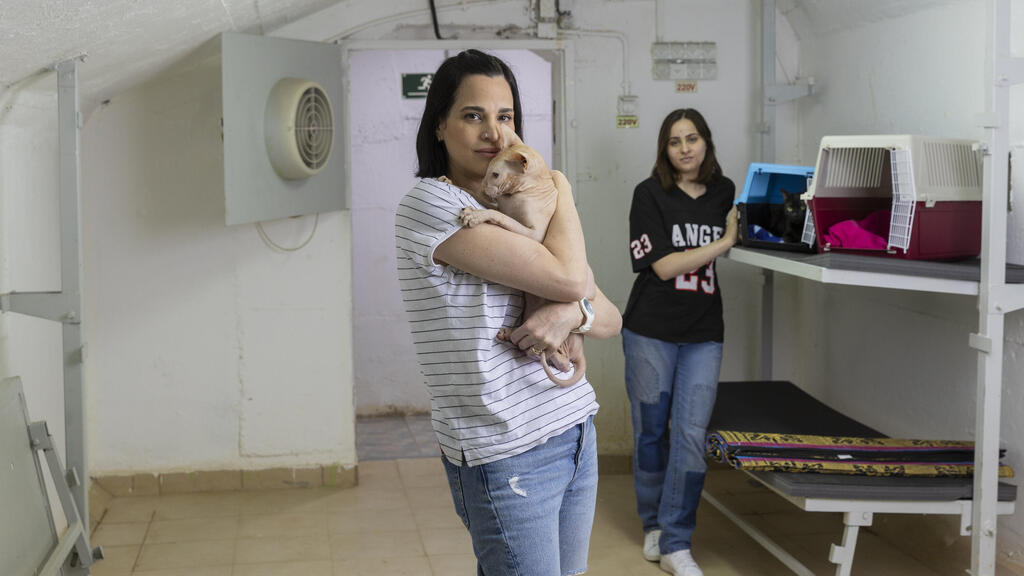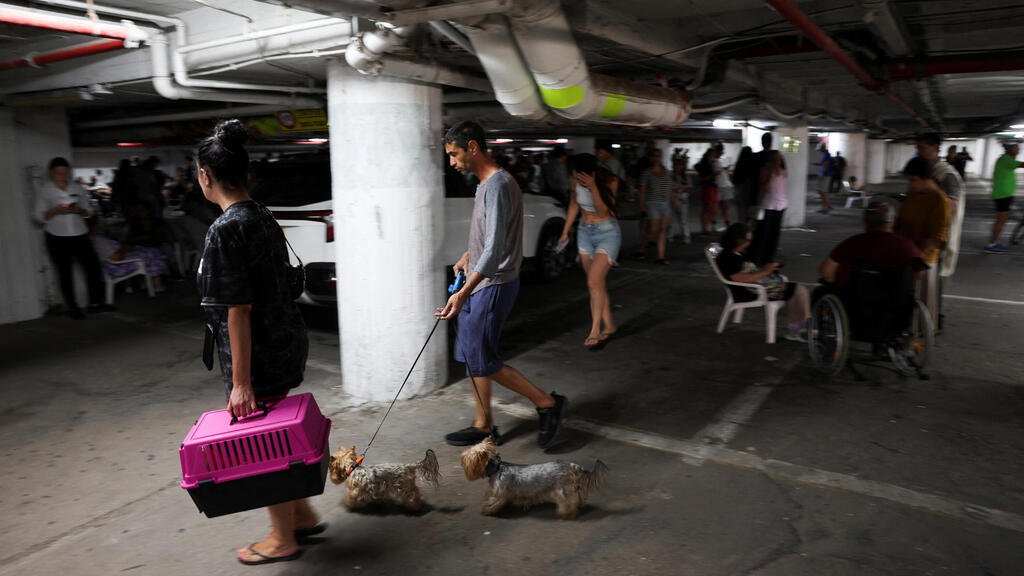How do you care for your dog or cat during turbulent times? As daily life is disrupted by missile fire and sirens, many pet owners across Israel are left wondering how to protect their animals from the fear and confusion caused by war. The reality is especially tough for pets: They don’t understand what’s happening, are startled by loud noises, and can become even more anxious if the people around them panic.
In light of the current security situation and against the backdrop of Israel’s conflict with Iran, millions of pet owners are seeking guidance. Veterinarian Dr. Hilik Marom offers advice for helping dogs and cats cope during emergencies.
When a siren sounds or explosions are heard from interceptions or missile impacts, pets may suffer intense stress, far greater than that of humans. The key, says Dr. Marom, is to stay calm, prepare in advance, and act decisively in the moment: Take your pet with you to a protected space, and bring essentials like water, food, and toys.
If possible, create a cozy spot in your shelter area for the pet, complete with a water bowl, food, and their favorite toy. Alternatively, prepare an emergency pet bag with collapsible water bowls, a water bottle, kibble, and a familiar item. “This isn’t pampering,” Marom emphasizes. “These are psychological tools that help animals cope.”
Stay calm and reassuring.
Your pet feeds off your energy. Just as you would with a child, speak to them in a gentle voice, pet them, and offer treats or favorite snacks to reduce anxiety. "It’s essential to take pets into the shelter with you," Marom says. "They’re part of the family, and we must protect them." Panic can trigger erratic behavior in animals. Cats and dogs pick up on changes in our body language and will react accordingly. The calmer you are, the safer they’ll feel.
Special considerations for cats
Cats are highly territorial and react very differently from dogs during stressful situations. While dogs may attempt to flee outside, cats tend to hide inside the house, sometimes in places so tucked away they can’t easily be found. That’s why it’s important to prepare safe and accessible hiding spots in advance.
Keep a collar and leash handy, even if your cat usually doesn’t wear them. Prepare a portable litter box with a scoop, and use a sturdy pet carrier with both a front and top opening to take your cat into the safe room. The carrier is crucial—it can mean the difference between a calm evacuation and a stressful scramble.
"The trick is gradual conditioning," Marom advises. "Leave the carrier open in an accessible place with treats, a soft cushion, or toys inside. Help your cat see it as a positive space, not a trap." During a siren, act swiftly but gently. If heading to a communal shelter, cover the carrier partially with a light cloth to reduce visual and auditory stimuli. Once inside, place the carrier in a quiet corner—preferably off the ground, as cats feel more secure when elevated. Make sure all openings are securely closed to prevent escape.
Anxious behavior, such as prolonged hiding under a bed or refusing to eat, may signal stress. For cats, loss of appetite can quickly become a medical issue. "Use slow movements, speak softly, and don’t overwhelm your pet with hugs or too much contact," Marom advises. "Remember, they’re trying to cope with something they don’t understand—just like you, only without the benefit of news updates."
Practice shelter routines
"If you live in an area with frequent sirens, it’s a good idea to practice sheltering with your pet," says Marom. "Take them into the safe room during quiet periods, so they grow used to it." When a siren comes, they’ll feel safer if the space is familiar. It’s also best to keep them in a carrier inside the shelter—this applies to small animals like guinea pigs, hamsters, and birds as well. If a carrier isn’t an option due to the animal’s size, use a leash—but never carry a frightened pet in your arms, as they may bolt.
Pets hear frequencies that humans cannot, which means sirens, rocket interceptions, and blasts are experienced far more intensely, similar to how they react to fireworks.
War, including the current conflict with Iran, has led to a sharp rise in runaway pets. "If your dog or cat runs away, stay calm," Marom says. "Many return home on their own. If they don’t, act quickly: Post photos on dedicated lost pet groups on social media, and notify neighborhood and city WhatsApp groups. Contact local veterinary clinics—someone may have already brought your pet in for a microchip scan."
Get the Ynetnews app on your smartphone: Google Play: https://bit.ly/4eJ37pE | Apple App Store: https://bit.ly/3ZL7iNv
If you find a stray animal, check Facebook groups for lost pets, then take it to a vet for microchip scanning. During the day, most clinics can help; at night, search for 24-hour clinics or reach out to 'HaSoarqim'—a Facebook group dedicated to pet recovery—for volunteers with chip scanners.
To prevent future escapes, Marom recommends a few safety measures:
- Make sure your pet’s microchip details are up to date.
- Consider using a harness instead of a collar—it’s harder for pets to wriggle free when panicked.
- Use reflective gear to make pets more visible if they do escape.
- Wrap the leash around your wrist to improve grip without applying too much tension.
“Don’t give pets extra freedom during emergencies. Keep them leashed at all times, even if you usually don’t,” Marom advises. “For pets with extreme anxiety, consult a vet about possible calming medications for extended emergencies.”
Marom emphasizes that the protected room saves lives—human and animal. After the siren passes, it’s okay to go outside for a short walk, especially during longer lulls.
“Preparation and calm action are key to protecting your pet’s well-being in emergencies,” he concludes. “By following these guidelines, you can keep your four-legged companions safe and emotionally supported even in the most stressful times. Don’t wait for a crisis—prepare now. This is unfamiliar territory for many of us, so be patient with yourself and your pet. If needed, seek professional help. You’re not alone in this.”





